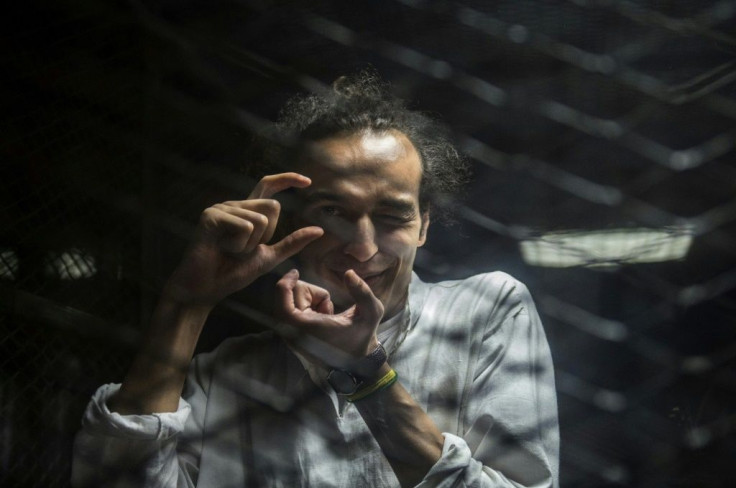New App Wants To Use Blockchain To Restore Trust In Online Media
KEY POINTS
- Capture App aims to create photos with a unique "birth certificate" that can verify their source
- The technique was pioneered by the Starling Framework, which used it to record accounts from Holocaust survivors
- If propagated, the technology could reinforce public trust in media distributed online
A new application of blockchain verification hopes to solve one of the thorniest problems of the information age: verifying that media is from a reliable source and hasn’t been altered. A photo app called Capture App creates a unique “birth certificate” for every photo taken and stores it on a blockchain network, allowing its creator to claim ownership of the original and know if it's been copied or changed.
Already available on app stores, Capture App uses the same basic concept as cryptocurrency: information is stored throughout the network and verified by all users instead of in one central hub, making it and any changes to it public.
Instead of logging who has what currency, Capture App uses image metadata like who took it, where, on what camera and whether it's been altered.
The technique was pioneered by the Starling Framework, a project to store and verify media of deep cultural significance. Developed by the Stanford Department of Electrical Engineering and the USC Shoah Foundation, Starling stored and verified accounts from Holocaust survivors, Kurdish refugees in Iraq and indigenous leaders of Achuar communities in the Amazon rainforest.
“It was exhilarating. As footage came back it was so powerful to behold how the video was supplemented by powerful metadata to prove, forever, that these videos were taken at a specific time and place,” Jonathan Dotan, a fellow with both the USC Shoah Foundation and Stanford University, told Filecoin. “And then as we replicated the files across the Web that fact only grew deeper and deeper, with a network of digital attestations.”
Starling has already been used by Reuters reporters to log verified photos during the presidential primaries.
Capture App aims to take the structure and apply it at scale, giving ordinary people the ability to create verified photos and videos. It’s especially valuable for journalism, allowing people to access valuable and reliable context for media in seconds.
Users can customize how much data is logged with the image, allowing citizen journalists working under oppressive regimes or dangerous circumstances to hide their location or identity. Recipients would be able to see what information is missing and adjust their trust accordingly.

Technology already exists to detect deepfakes, which alter footage to make people appear to say things they didn’t, but subtler misinformation like a real video with a fake title is harder to catch. Services like Capture App could provide another layer of authentication, ensuring that faked videos can be easily disproven by the original's creator.
There are also already services to verify information using blockchain. Capture App co-founder Tammy Yang hopes the widespread accessibility of her app can create a world where people can trust the information they find online because they know exactly where it was generated.
“We focus very much on the camera itself, so at the time the photo is taken, the integrity is already preserved,” she told TechCrunch. “If content is captured on a camera app and then copied to a content platform, it’s already very difficult to verify its origin. If I take a photo from Facebook and register it on the blockchain, it means nothing. It’s very different if I take a photo with Capture App and immediately create a registration on the blockchain."
© Copyright IBTimes 2025. All rights reserved.



















